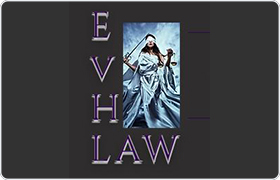Albuquerque Criminal Lawyer, New Mexico
Sponsored Law Firm
-
 x
x

Click For More Info:
-
Law Office Of Elizabeth V. Han
2601 Wyoming Blvd NE Suite 106 Albuquerque, NM 87111» view mapCriminal Defense and Divorce & Family Law Trust Our Experienced Team
Let the Law Office Of Elizabeth V. Han handle your legal matters.
800-647-3590
Jacob Salazar
✓ VERIFIED *Status is reviewed annually. For latest information visit hereJacob is a U.S. Navy Veteran, a graduate of the University of New Mexico and Valparaiso School of Law. Jacob has been helping New Mexicans injured du... (more)
Mark A. Keller
✓ VERIFIED *Status is reviewed annually. For latest information visit hereMark A. Keller and his team of attorneys provide aggressive legal defense for people in Albuquerque, the surrounding area and throughout the State of ... (more)
Leonard J. Foster
✓ VERIFIED *Status is reviewed annually. For latest information visit hereLeonard J. Foster accepts cases involving Personal Injury, Criminal Law, Business Law, & Native Peoples and is an active Lawyer practicing in Albuquer... (more)
Rachel Walker Al-Yasi
✓ VERIFIED *Status is reviewed annually. For latest information visit hereCriminal Lawyer proudly serving Albuquerque, New Mexico and the surrounding areas. Please call 800-578-4330 to speak with Rachel Walker Al-Yasi today.... (more)
Ryan D. Baughman
✓ VERIFIED *Status is reviewed annually. For latest information visit hereThe Law Office of Ryan D. Baughman, LLC is a law office based out of Albuquerque, New Mexico. The office is led by solo-practitioner Ryan D. Baughman,... (more)
Joshua A. Goldberg
✓ VERIFIED *Status is reviewed annually. For latest information visit hereJoshua Goldberg is a practicing lawyer in the state of New Mexico who handles criminal matters.
Elizabeth Honce
✓ VERIFIED *Status is reviewed annually. For latest information visit hereBoglarka Foghi
✓ VERIFIED *Status is reviewed annually. For latest information visit hereThe Foghi Law Firm was founded by Boglarka Foghi in 2009, specializing in criminal defense, family law, and business law. Managing Partner Boglarka F... (more)
Matthew A. Vance
FREE CONSULTATION
CONTACT Elizabeth Han Albuquerque, NM
Elizabeth Han Albuquerque, NM Practice AreasExpertise
Practice AreasExpertise








